- Home
- Scott Turow
Personal injuries kc-5 Page 18
Personal injuries kc-5 Read online
Page 18
"Hey, I'm a big boy. I took a chance and I lost."
She battled herself. He was always saved by intuition. Because of course there was a piece of her that inevitably needed to explain.
"You barefaced lied to me and now you want an apology?"
"Lied?"
"Didn't you tell me that you'd stopped that stuff?"
"Oh, please."
"Didn't you? What was it you said. `It seems disloyal'?" He'd be single again soon enough. She skipped that part out of sheer mercy.
"What's it to you?"
"Only my job. That's all. Just what I get up every morning to do. I'm lyin in bed last night, ripping the hell out of myself. `How'd you miss it?' Then I realized you'd looked right in my dumb green eyes and told me that whopper."
"You didn't believe it anyway."
"Stop making excuses, damn it! What kind of person are you? How can you just flat-out say stuff that isn't true? That you know isn't true?"
"Aw, don't give me that production number. `Men were deceivers ever.' Shakespeare, right? Everybody lies. `Oh, I love your hair.' `What a great idea.' `The dog ate my homework.' Jesus Christ. Every minute you're living is a lie. Look at you. `My name is Evon Miller. I'm a Mormon girl from Idaho."'
"But that's for a reason. For a good reason." "So, I had a good reason, too."
"Yeah? Fooling around and getting favorable rulings?"
He tried to speak, then stopped. His hands moved first.
"Listen, you know, when I went romping around up on the stage, I always felt like I was trying on things about myself. Little pieces of myself. Seeing if they could be ginned around to fit. Like making stained glass. You can call me a liar, and people do. But at least I've tried. I haven't sat around with the same loony-tune fantasies as everybody else, keeping them in some hot dark box until they start to stink. If you talk, if you tell, if you make the play, if you say, That's who I am, at least it gives you the chance to figure out if you're right."
She thought of a million old sayings. So full of it his eyes were brown.
"And who did you think you were trying to be by b.s.ing me?"
His Adam's apple wobbled.
"Somebody you liked."
She didn't say anything. He was an actor, she reminded herself. An actor. At a stoplight, a woman in the next car was making up her face, sharpening her brows at the moment, as she hiked herself up to the rearview to peek at the results. They drove on quite some time without speaking, the morning burble of two high-powered drive-time jocks filling the car, the pair yelling at each other to revive their audience.
"So'd you listen to it?" he asked.
She just slid her eyes over. He knew the look by now.
"Oh, come on. Fess up. I know you listened to that tape." They went through that a couple of times, each runthrough stoking her anger again.
"Why would I care?" she asked him.
"Cause you've got this burning interest in my scintillating personal life."
"Me?"
"Oh, come on. That's all you want to talk to me about. Almost from day one." He went down a list he'd apparently been keeping, beginning with the girl with the flag. He didn't mention the other day when she'd frisked him, but it was clear the incident had emboldened him. By the time he finished, she could barely hear over the blood rush throbbing in her ears.
"Hoo boy. Here we go again. What do they call this? A recurring theme? I just can't resist you."
"You're curious about something."
"Drop dead." She said it as if she meant it. Which she did. Instead he repeated himself. She was curious.
"You know, Feaver, you ain't as smart by half as you think you are. I thought you told me you had the picture? When you gave me your big lecture about Shaheen Whatever Her Name Is who you kissed onstage? I thought you said you had me all figured." A little voice within asked what in the Lord's name she was doing. But it was the stuff with McManis. The only way she could translate it was just to let fly.
In spite of traffic, he'd turned full about to look at her. She did not shy away, just let the anger bum from her eyes. For the moment she had him confounded. Not because he didn't remember. But because he couldn't get the words out of his mouth.
"I never said that," he insisted.
"The hell."
"I didn't."
"Well, what if I said you were right? What would you say, smarty-pants?"
He took an awfully long time.
"You dig girls?"
"What would you say?"
He drove in silence. But she could tell he was thinking. His eyes seemed to have shrunk back some infinitesimal measure into his face.
"I'd say, Good."
"Good!"
"Yeah," he said, and finally cheated a glance her way. "I'd say we have something in common."
"You know, I know that was just a line. Yesterday? About you being a-"
She arched an eyebrow awaiting the slur. They were in the Mercedes, on their way into work.
"What should I say?" he asked. "`Sapphist'?" "'Lesbian' seems to be the word if you're straight." "But you're not, are you?"
"Straight?"
"Not-straight."
"Look, whatever I am is none of your business." "So why'd you tell me?"
She'd been contemplating that for a day. She'd needed to knock him off his high horse, to regain some control, let him know he didn't have her completely pegged. But whenever her mind lit on what she'd said, she wanted to crawl away.
"I think it's a play," he said.
She told him to think what he wanted, but she couldn't settle for that. After a moment, she pivoted on the smooth leather of the passenger seat.
"It's just a hoot. I'm tellin you things, my Lord, sayin things to you I haven't told my sisters. And you're sittin there goin, Prove it. What do you want me to do? Describe my first time?" He actually seemed to consider that.
"You know, I've done that," he said, a block or two farther on. "Said I was that way. `Inverted'? Isn't that the word?"
"You said you were gay?"
"Yeah, I did. I did it a lot. As a play."
"Naturally," she said dryly.
"What does that mean?"
"Forget about it."
"You think I'm always on the play, right?"
"Look, just tell me the story. That's what you're gonna do anyway, isn't it? You think I'm giving you a line about being a lesbian and you'll prove it by telling me how you've said you're gay. Which, of course, is a play, because nobody could ever believe that about you."
He stared at her for some time. They had just pulled into the garage at the LeSueur and he slammed the car into park. God, where did that come from? She was mean. She could hear her mother's voice clearly, delivering that judgment: she was mean. She grabbed his wrist.
"Look, tell me the story."
"Another time," he said. He patted his muffler into place, inspecting himself in the vanity mirror on the visor as he prepared to present himself to the public in the lobby of the LeSueur.
"Okay, be like that."
"Look, it's not a big deal. I told you it was a play. You're going to hate me for it, anyway."
"Then I'll try to forgive you," she said. Her mother had always said that forgiveness was a virtue. He took the chance of looking her way to see if she meant it, before he stared out the windshield into the murky reaches of the garage.
"It was just in college, all right? It was a line. I'd tell girls that. You know, that I was having a crisis. That I thought I was that way. That I was really worried about it. And in those days, they'd be horrified. For my sake. You know, they'd say, 'No, not you, you can't be that way. Have you ever done anything?' `No, no,' I'd say, `but I just worry about it sometimes.' Look, it was the dark ages. Nobody ever talked out loud about this stuff. It probably sounds ridiculous now. But to an eighteen-year-old girl from Great Neck, it was pretty convincing. And you realize what the point was, right? You know what I was really after."
"And it worked? Girls fe
ll for it?"
"All the time. They were always so proud of me afterwards. Even girls I never called again didn't mind. It was our little secret that they'd sort of healed the leper. I guess I shouldn't laugh. Right?"
"Right." She looked away.
"You said you'd forgive me."
She'd said she'd forgive him. Her mother, who preached that lesson, seldom seemed to forgive her. Some woeful guttural escaped her. Every time she sat her large pink fanny down in this automobile something went awry.
"Who cares?" she asked. "I forgive you, you forgive me. Who we kiddin? You're just talkin dirty and I'm lettin you do it."
"It's not dirty."
"No, what is it?"
He took a moment.
"It's friends. Isn't it? Aren't we? We're talking like friends, that's all."
Friends. She couldn't believe it. She felt the weight of him watching her.
"So do they know?" he asked.
“They' who?"
"Your bosses. Headquarters. Whoever's on the homo patrol, now that they missed J. Edgar Hoover."
She could see how this was going to turn out. A cataclysm. It was never going to end. She refused to answer.
"I thought that was an issue," he said. "They don't want anybody blackmailed."
"Are you threatening me?"
"No. God no."
"You're threatening me. I tell you I'm a lesbian-"
"Hey," he said. "I don't care if you say, `I'm a little teapot.' That stays here. I don't rat my friends, Evon. No matter what. That's why everybody was on my case yesterday."
She wondered what Walter Wunsch or Barnett Skolnick would say about that. This guy would never make sense.
"I was just thinking," he said. As he paused, a little ironic wiggle flexed through his even features. She knew what was coming. Something of dubious taste, surely insulting. Something that would treat her life like a dirty joke.
"Don't you dare," she told him. She popped the door lock on her side.
"No." He reached after her. "No, I just realized."
"What?" What could he possibly have realized?
"You're always undercover."
APRIL
CHAPTER 19
At the time I met Sherm Crowthers, I was a young State Defender and he was one of the stars of the criminal defense bar. Throughout my career, there have always been gifted black men renowned in court, great orators who borrow from the style of Baptist preachers. But Crowthers was unique. He was a stone fortress of a human being, nearly six foot six. His huge proportions had paved the way for a college scholarship to State, where he became a legendary football star in the fifties. After he had literally knocked down a wooden goalpost while catching a touchdown pass he had acquired the nickname Sherman, in reference to the tank, and I seldom heard anyone call him Abner, which was his given name. His size was also the foundation of a uniquely imposing personality. In court, he was seldom anything but belligerent. He terrified witnesses, including cops, treated judges with disdain, and did not even spare juries. He attempted charm in the early phases of a trial, but in summation he worked himself into a state of absolute fury in which he delivered virtual orders to the jurors, which, to the chagrin of the prosecution, were all too often followed.
Sherm was brilliant. But it was the aggressive character of his mind that especially impressed me. He was never back on his heels. He accused and quarreled and ridiculed and rarely met any argument head-on. His accent was still strongly flavored with south Georgia, where he'd been a shoeless boy, but it was no drawl. He spoke at bullet speed, never quite getting to the end of words before another thought was coming at you, the better to batter you down.
In my early days, I tried one case with him as co-counsel. I was scared of him throughout, just like everybody else I knew. Our clients were charged in a dice game murder; Sherm's guy had been cheated, and my client's prints were on the gun. Their defense was that the murder weapon had actually been drawn by the victim, whom, they said, had been killed as they attempted to wrest the.38 from him. The onlookers didn't seem to remember it that way, although they admitted things had happened quickly. But the pathological evidence appeared to show that the gun had been fired from at least three feet.
Sherm's cross of the police pathologist, Dr. Russell, was astonishing. He took the murder weapon and loaded it while Russell was on the stand, cleared the chamber, then put the weapon in the pathologist's hand and forced it back toward his face, engaged all the while in a barrage of questions about the physiology of wrists and fingers. As the gun lingered at his temple, Russell's voice grew watery and he appeared to have no confidence whatsoever in his opinions. Afterwards, the Chief State Defender asked me what I'd learned from the experience of trying a case with the legendary Sherm Crowthers. The answer was nothing. He was inimitable. It was hard to convince anyone that I'd actually seen a defense lawyer point a loaded gun at a witness during cross-examination, much less that the judge and the prosecutors never thought to object.
Nevertheless, the case left me with much to ponder. Sherm saw life in terms of angry essentials, inescapable categories-rich and poor; black and white-which as far as he was concerned defined everything and whose existence enraged him. Even worse, in his view, was the hypocrisy practiced by virtually everyone but him in refusing to acknowledge the all-determining power of these factors. When the jury went out, I was astounded that Sherm had no doubt they'd acquit.
`We gone win this case, don't you know that? No problem here. Cause it's just a nigger shootin a nigger. Happens every day. We gave that jury all the excuse they need. This here was just some drunks at a dice game, not somebody gone bust into their house. They don't care now. This idn't gone take two hours 'fore they send these two fellas home, don't give a hoot if they get drunk and shoot another nigger or two tonight.' Sherm was huge in every part, with a massive face, a long wide brow, and large throbbing eyes. His hatred for a moment stood magnified in all of his dark features. He despised me, not so much for being white as for not seeing what was plain to him. And the jury returned a not-guilty verdict in about ninety minutes.
When he was nominated for the bench, I was astounded. Sherm lived the black bourgeois life, not a lot different from Robbie's: big cars, diamonds, snappy clothes. And I couldn't imagine him enjoying anything in the law more than combat in the courtroom. Furthermore, every lawyer I knew, black or white, was terrified of facing Sherman on the bench. In the Bar Association there was a restless current of opposition. But it was the early eighties; the dispossessed African-American electorate was demanding more black hands on the levers of power; and no one could doubt Sherm's abilities. As my friend Clifton Bering, probably the county's most respected black politician, told me, `He's a son of a bitch, George. But he's the son of a bitch we all need.'
The two contrived cases Robbie had in front of Crowthers, one assigned to him directly, the other transferred from Judge Sullivan, had dawdled along. The first of the cases, King v. Hardwick, was supposedly a sexual harassment suit, whose plot Robbie had dreamed up, apparently inspired by the story he'd later told about Constanza's daughter and her ex-boyfriend. In this version, a young woman, whom we called Olivia King, had been secretary to Royce Hardwick, an executive at Forlan Supply, who was two decades her senior. In her first year of employment, she and Hardwick had had a brief fling. Eventually, she met a man closer to her own age and broke off the relationship, enraging Hardwick. His wounded antics, ranging from pitiful entreaties to furious ridicule, had forced her to quit her job. Even then Hardwick persisted. He followed her to work, harassed her by phone, and sent silly defamatory letters to her new boss, which, while unsigned, were clearly from him. Finally, in desperation, Olivia had contacted a female superior of Hardwick's. An investigation was initiated in which a company attorney interviewed him. Hardwick casually admitted virtually everything Olivia claimed, laughing it off as a prank. He was astonished when the company fired him.
Now that Olivia had brought suit, Hardwick's stor
y had changed. He defended with a mixture of outright denial and failed recollection, explaining objective evidence like phone records and Olivia's coworkers' sightings of him lurking around the elevators as simply part of his efforts to retrieve needed information from his departed secretary. As for Hardwick's confession to the company attorney, his present lawyer, James McManis, asserted that it could not be admitted into evidence because of the attorney-client privilege. The central question in determining whether the interview was privileged was whether Hardwick could have reasonably believed Forlan's lawyer was acting in his behalf, rather than for the company. On April Fool's Day, Robbie and McManis appeared before the Honorable Judge Crowthers to argue the issue.
As a judge, whatever else might be said against him, Sherm never had problems arriving at an opinion about a matter. He was pontifical and often brutal with the lawyers before him. Today he shook his mighty head as he read through the papers Robbie and McManis had filed.
"Where's your client?" he demanded of Jim. With the bench elevated six feet over the well of the court, Crowthers appeared the size of Zeus. McManis was wordless as Sherm leered down at him. "You want me to deny this motion, don't you, Mr. Mack Manis?"
"Yes, sir," said McManis when he finally found his tongue.
"And the reason's cause your client believed he was speaking under the confidence of the attorney-client privilege to this lawyer from Forlan Supply. Isn't that what you're sayin here in your papers?"
"Yes, sir."
"Am I gonna take your word for that?"
"Sir?"
"Am I supposed to let you tell me what your client thought, or is your client gonna get up on the witness stand here in my courtroom and tell me for himself?" Crowthers always took a particular glee in eluding attorneys' expectations. Practicing before him was a little like hitting a ball toward the front wall of a handball court without realizing that it could come back and smack you from behind. "So where is your client?" Crowthers demanded again.

 Testimony
Testimony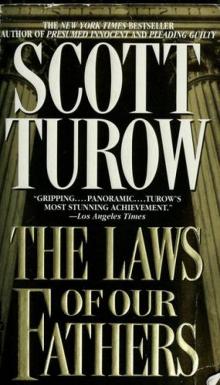 The Laws of Our Fathers
The Laws of Our Fathers Ordinary Heroes
Ordinary Heroes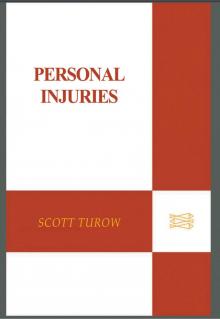 Personal Injuries
Personal Injuries Limitations
Limitations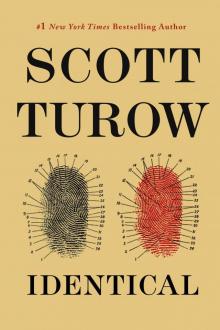 Identical
Identical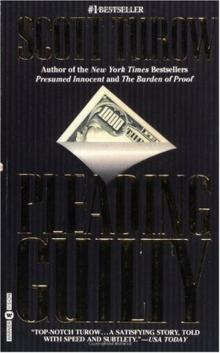 Pleading Guilty
Pleading Guilty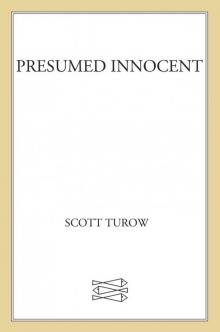 Presumed Innocent
Presumed Innocent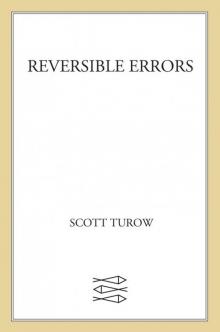 Reversible Errors
Reversible Errors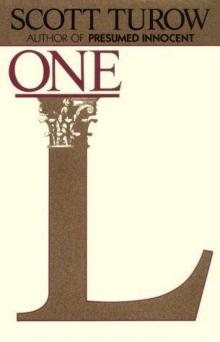 One L: The Turbulent True Story of a First Year at Harvard Law School
One L: The Turbulent True Story of a First Year at Harvard Law School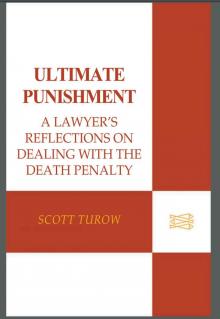 Ultimate Punishment
Ultimate Punishment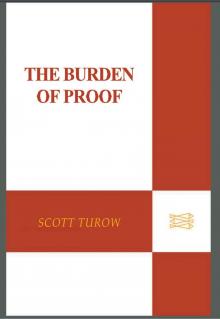 The Burden of Proof
The Burden of Proof Ordinary Heroes (2005)
Ordinary Heroes (2005)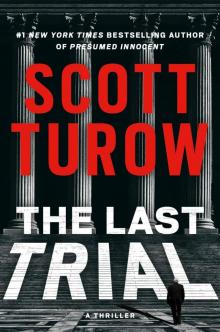 The Last Trial
The Last Trial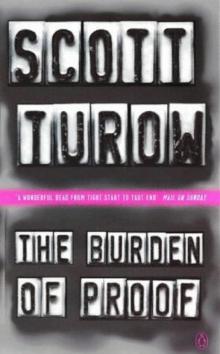 The Burden of Proof kc-2
The Burden of Proof kc-2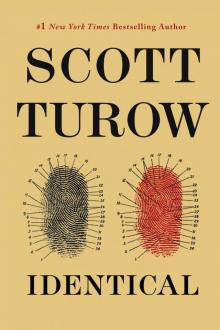 KC09 - Identical
KC09 - Identical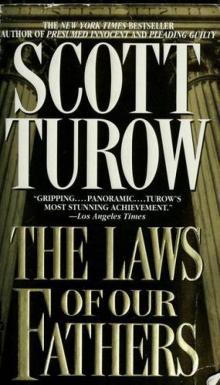 The Laws of our Fathers kc-4
The Laws of our Fathers kc-4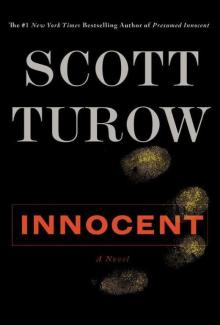 Innocent kc-8
Innocent kc-8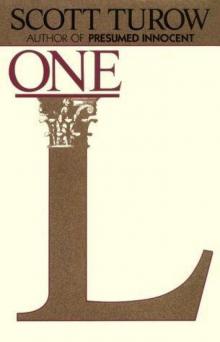 One L
One L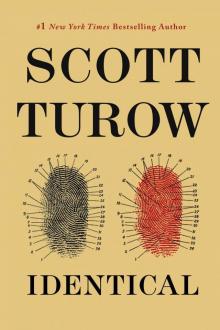 Identical kc-9
Identical kc-9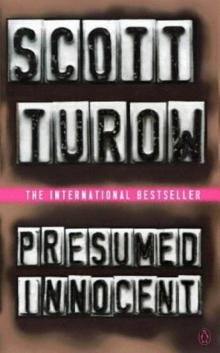 Presumed innocent kc-1
Presumed innocent kc-1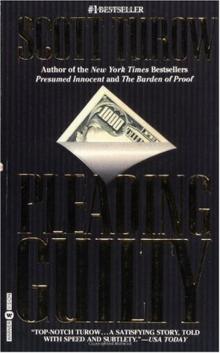 Pleading Guilty kc-3
Pleading Guilty kc-3 One L (1977)
One L (1977)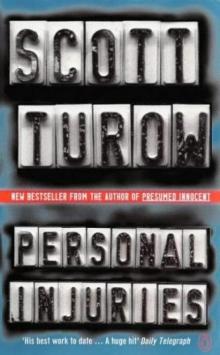 Personal injuries kc-5
Personal injuries kc-5